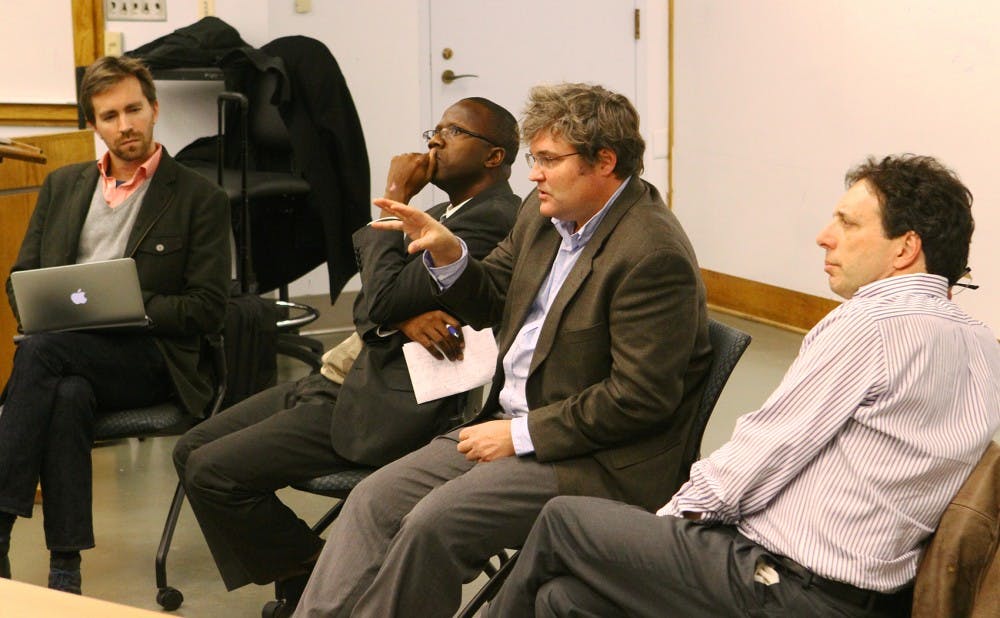Professors discussed the past, present and future of al Qaeda’s presence in Africa during a panel Wednesday evening.
The discussion—titled “The New Face of Terror: The Evolving Threat of al Qaeda and Extremism in Africa”—was moderated by Seth Cantey, a sixth year graduate student in political science. The panelists were Mbaye Lo, assistant professor of the practice of Asian and Middle Eastern studies, Bruce Hall, assistant professor of history and African and African-American studies and David Schanzer, associate professor of the practice of public policy and director of the Triangle Center on Terrorism and Homeland Security. The Duke International Relations Association organized the event.
“The big question in terrorism and counterterrorism—is Africa the new launching pad?” Schanzer said. “Is this where al Qaeda is going to make its comeback? Has it come back?”
Al Qaeda, as it currently exists, is quite different from the al Qaeda responsible for the attacks of Sept. 11, 2001, Schanzer noted. Previously a centralized organization able to operate without much government interference, it now functions mostly as a collection of regional insurgence groups that experience great political opposition.
“Al Qaeda means the base—what that means is the blueprint,” Lo said. “It means, wherever you are, if you want to join us, you can join the base.”
With this decentralized structure, social media has become a notable recruiting tool, with young men as the primary targets, Schanzer said.
This has been accompanied by “media jihad,” the concept that extremists can and should use the Internet to publicize and promote their beliefs, Lo added.
Al Qaeda’s present structure has introduced a number of questions regarding how best to handle its actions and predict its future, panelists said.
“The big dynamic here is the extent to which this is local...or the extent to which this is international,” Hall said.
The way in which governments deal with terrorist organizations can present a dilemma, Hall noted. Suppressing these groups in the interest of public safety often involves using force, which can incite increased violence in return.
“How do you calibrate what we have to do right now with the bigger, long-term objectives?” Hall asked.
Senior Olivia Wasteneys, director of campus affairs for Duke International Relations Association, said she was inspired to organize the panel after learning about the subject in a course taught by Lo. Given the great deal of media attention focused on terrorism stemming from the Middle East and Southeast Asia, many might not know details about related situations in Africa, she said.
“I really liked the fact that each of them had different perspectives,” first-year Connor Phillips said regarding the panelists. “They had different areas of expertise and could shed light on the issue from different areas.”
Get The Chronicle straight to your inbox
Signup for our weekly newsletter. Cancel at any time.

